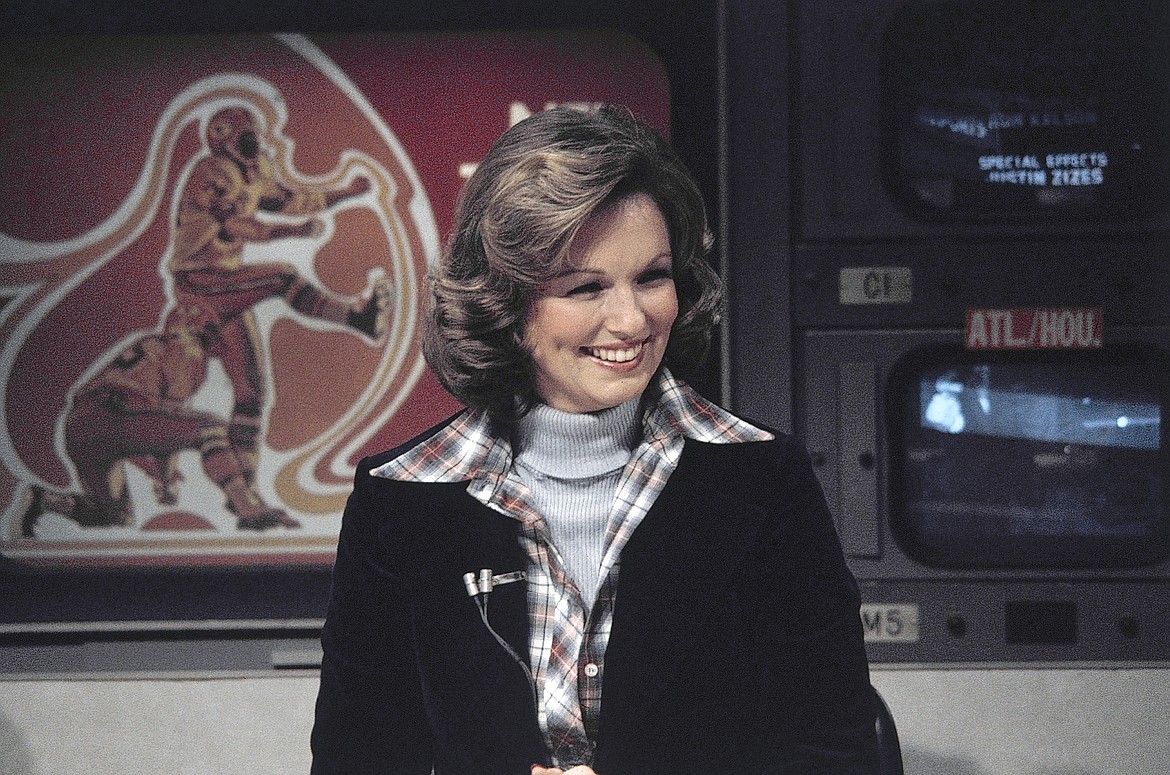THE CHEAP SEATS with STEVE CAMERON: Phyllis George legitimized women in sports media
You probably had to be there.
It was a very different time.
I’m mentioning those qualifiers because, looking back through the lens of 2020, a neutral observer might well say that sports journalists of the mid-1970s were sexist.
There were almost no women in the business at that time, and of the little gang that turned up during the decade, many were all fluff — with little savvy about what they were covering.
A majority of male sports writers and broadcasters from that era would tell you that SOME in the first gaggle of female newcomers were sleeping with athletes to get “exclusive” stories.
And before you gasp, and take us to task…
It was true.
Many men in the business — but not all, to be honest — had no real objection to women doing the same work.
That was in theory but, in our everyday world, often it meant that we had to wait outside locker rooms and baseball clubhouses because teams didn’t want females inside.
So, we ALL were banished into some hallway until a “requested player” came out to answer a few questions.
IT WAS a tense time, and many of us wondered if the small group of women “pioneers” really intended to stay the course.
Then came Phyllis George.
At first glance, this appeared to be more of the same — a former Miss America, presumably a very pretty lightweight to put on the air in some secondary role.
More eye candy for viewers in their man caves.
Just the very thing that was causing male journalists to grind their teeth.
But everyone was wrong.
In fact, let me make the strongest statement possible: No one ever did more for women in sports journalism than Phyllis George, who passed away last week at age 70 — after battling a hideous blood disorder that she endured for half her life.
The very first time I met Phyllis, in a media lounge before an NFL game, she quizzed me at length about a team’s third-down tendencies.
Beyond the beauty and a lovely personality, she was a reporter who studied relentlessly to learn her craft.
It’s not an exaggeration to say that women in sports journalism were viewed differently, and more of them given the benefit of the doubt, after Phyllis proved she was dead serious about the business.
Beyond that…
She was simply a terrific person.
Phyllis remembered everyone’s name and where they worked, even reporters from tiny organizations that she might see once or twice a year.
SOMEHOW, she never came across as being famous.
I always thought that was an amazing trait.
How are you known to almost everyone in America, but still acting — quite sincerely — like that small-town girl from Denton, Texas, just trying to survive her first assignment?
It wasn’t an act, either.
She really was that nice, and she really did work that hard.
Phyllis also knew that she had been cast in the role of legitimizing women in sports media — past, present and future.
But at the same time, she tossed out a challenge to women in the business…
“Don’t just count on being pretty, kid. Learn what you’re talking about, and then learn some more.”
Once Phyllis George became a legitimate star, the women who came after her understood that being cute and winking at some quarterback was no longer acceptable.
You had to know what the hell you were telling your audience.
Phyllis George changed the role of women in sports journalism, pure and simple.
It was a legacy earned the hard way, with an awful lot of work.
She will always have my admiration.
Email: scameron@cdapress.com
Steve Cameron’s “Cheap Seats” columns appear in The Press on Wednesdays and Fridays. “Moments, Memories and Madness,” his reminiscences from several decades as a sports journalist, runs each Sunday.
Steve also writes Zags Tracker, a commentary on Gonzaga basketball, once per month during the offseason.

